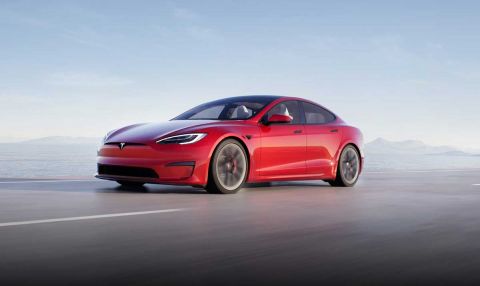Tesla agrees to pay EV owners $625 each to settle battery throttling-related class-action lawsuit
American billionaire entrepreneur Elon Musk-led Tesla Motors has finally agreed to pay its EV owners more than $600 each to settle a class-action lawsuit over throttling of battery capacity. In May this year, a Norwegian court found Tesla Motors guilty of throttling the charging speed and battery capacity of its EVs. The verdict was pronounced after more than two dozen Tesla car owners filed a complaint, arguing that the software updates issued by the company in 2019 slashed the battery capacities of their vehicles.
Under the terms of the settlement, the Palo Alto, California-based EV giant has agreed to pay $625 to each of its affected customer. The settlement is yet to be approved by the court, but experts are of the view that the possibility of the court’s approval is high.
The class-action lawsuit over throttling of battery capacity dates back to 2019, when several Tesla EV owners lodged complaints about notable declines in their vehicles’ range from 30 miles to 12 following a software update rolled out by the manufacturer over the air. For most of the affected Tesla EV owners, the range drop occurred after the electric car pioneer updated the vehicles with 2019.16.1 and 2019.16.2 software updates.
The Model S EVs powered by 85-kWh battery packs, which were discontinued by the manufacturer in the year of 2016, were reportedly also affected by the controversial software update at that time.
One of the many affected Tesla EV owners was David Rasmussen, and he argued at the time that he suffered one of the most severe declines in the range of its electric car on a single charge.
Lodging a complaint at the time, Rasmussen stated, “My 2014 Model S 85 was getting Rated Range of 247 miles until May 13. Now after the next update, it continued to drop to now 217 miles. This is an 11% drop in 5 weeks.”
In addition to the loss of range, Tesla EV owners suffered due to reduced pace of DC fast-charging at the company’s world-famous Supercharger stations. Affected owners saw much slower charging sessions.
Defending its action of rolling out the controversial software updates at the time, Tesla said in a statement that the main objective of the updates was to protect the electric cars’ battery packs as well as to improve their longevity. However, the EV giant also admitted that the updates resulted in loss of range for a “small percentage” of EV owners.
